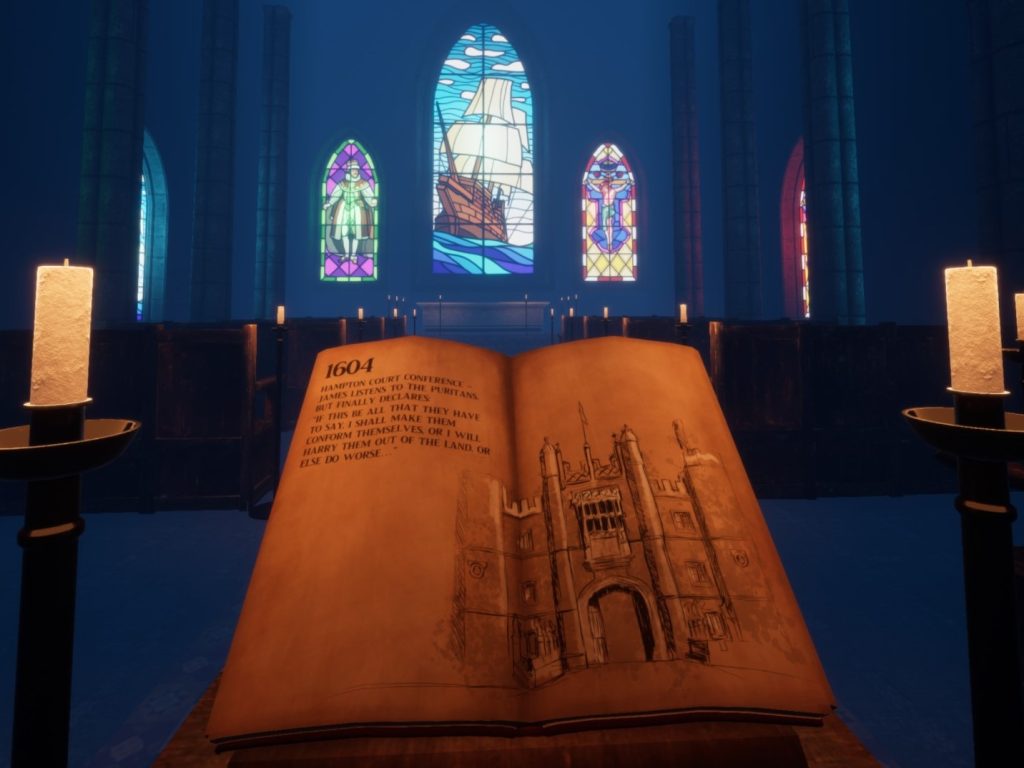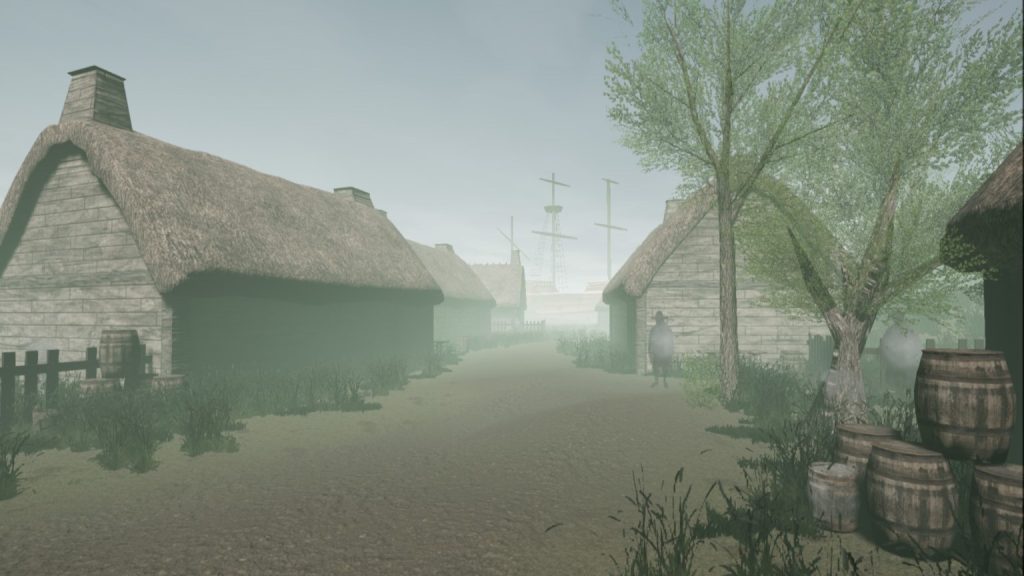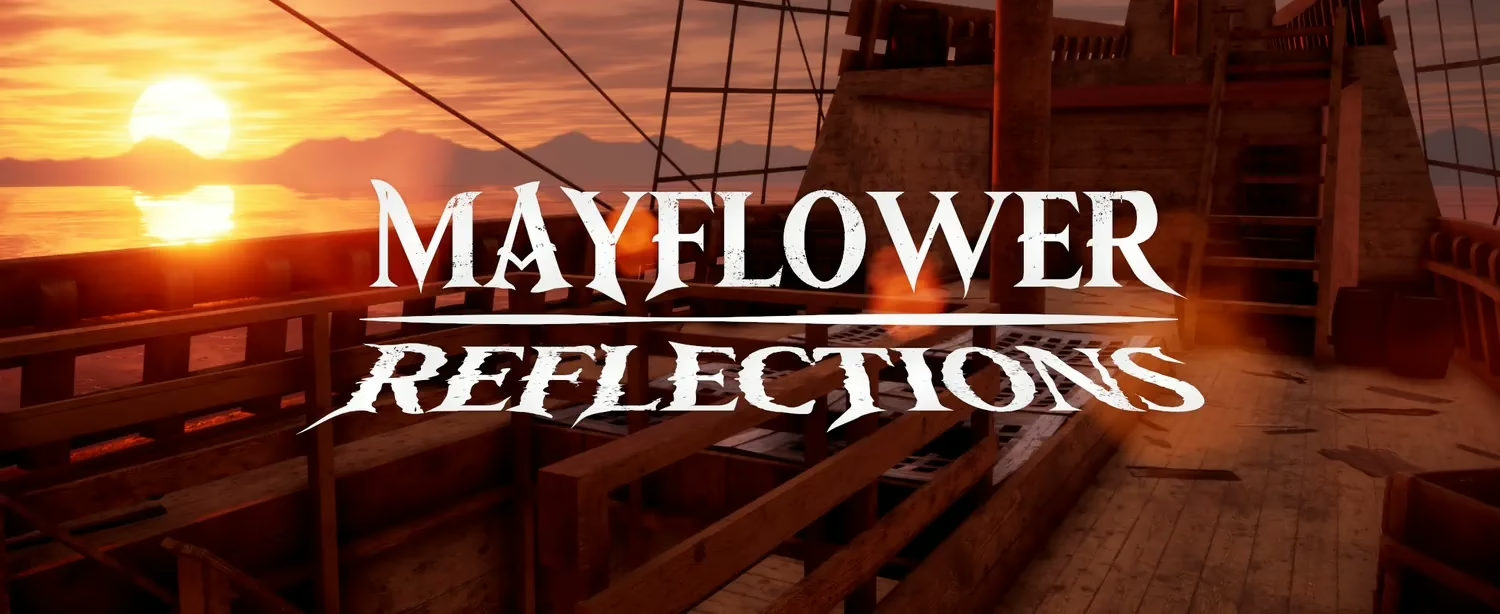Mayflower Reflections explores the impactful story of the Mayflower Voyage of 1620 and the similarities it shares with contemporary society. Discover the motivations of the 102 members of the Plymouth colony who fled to America to establish a new kind of democracy. Be immersed in the dangers of their journey and the early days of their settlements. Understand how the native settlers influenced the Plymouth Colony’s survival. Experience how the decisions of 400 years ago are still reflected in the world today.
From the product description
About the Experience
If you’re an American, the word “Mayflower” brings to mind many associations. We grow up learning about the famous boat that originally brought European settlers to what is now the northeast coast of the United States. Every American learns about the settlers, the bitter winters, meeting with the Native Americans, and the help that inspired last week’s holiday, Thanksgiving.
These high-level plot points miss out on much of the actual motivations and realities of traveling half-way around the world to practice their religion as they wanted to. There are movies and other documentaries to shed light on this, but virtual reality experiences go much further to really engender a sense of empathy and connection with the subjects of our story.
Mayflower Reflections offers an up-close view of the decisions and actions taken by the settlers as they made their way to America and got settled. There are many aspects of this settling/colonization that don’t sit well with us today, but that doesn’t change the past. Learning more about these people and their choices is always a good thing.
I was also pleased that they made an attempt to connect the desperation and motivation of the original settlers to the migrants and refugees who want to settle in the US today, despite growing opposition to leaving these same doors open that benefited earlier generations. It’s important to note, however, that these are complex topics which can’t be given justice through some almost incidental remarks in a short documentary.

Graphics and Sound
The graphics are adequate. Not cinematic or photo-quality, but definitely enough to tell the story without being distracting. The light from the candles and streaming through the windows looks nice. There are shadows and fog, both sunlight and moonlight. It looks good.
There aren’t any sound effects that I noticed. The entire presentation is music and narrative.

Information Content
The tale of the settlers is made interesting by being able to see the ships and the locations up-close and immersively. This is what separates it from a book or movie. The narration tells us about the motivations and the consequences of the settlers’ actions, while we stand in the middle of it. The actual content is a mixture of retelling and commentary as is common for modern documentaries.
The information content is good but just know that it it’s not simply a straight-up documentary. The references to the border wall and refugee camps raise questions and suggest points of view but ultimately it doesn’t dig far enough to provide any deep discussion.

Navigation and Interactivity
This is an immersive experience — not an interactive one. The VR app is really an extension of a 360° documentary made by the same team (freely viewable on YouTube). That documentary uses the same graphics and narration as in VR, but with the addition of full 3D. This means that you can move your head around a little bit unlike the 360° video version with its locked viewpoint. It doesn’t allow for fully exploring the historic scenes like in many apps, but just having the sense of immersion is a nice plus.

Updates and Support
No content updates are expected.
Summary
Mayflower Origins is a decent production providing a deeper look at the settling of the United States. The graphics aren’t Hollywood level, but they are sufficient for their purposes. The voice-over narration is done well, and the overall flow works nicely. It’s designed for sitting or standing without the freedom to explore, and it’s non-interactive. As long as you accept that it’s an immersive, non-interactive documentary with an agenda, it’s a good way to explore America’s past.
Pros
- Good flow to the narrative
- Good quality voice-over
- A decent attempt at bridging the motivations and stories of the original American settlers to today’s migrants and refugees
Cons
- Linear and fixed
- No ability to explore
- Additional message may be polarizing to some


